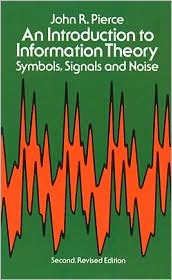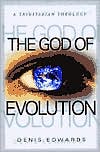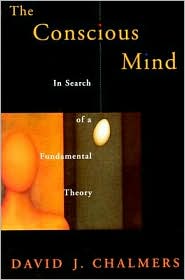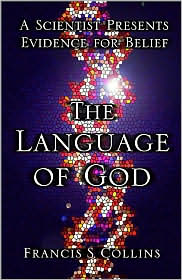Intelligibility as Proof of God? (I.D. XVII)
Rather, in this post I want to summarize Dembski's own position yet again, for at its core I think it's right on the money.
Dembski's basic position has two parts. First, he says there are objective ways of detecting intelligent design in anything, not just things that we know are designed from the get-go.
Second, he shows that in what we ordinarily consider to be the natural world, there is no explanation for all the intelligent design we detect. Hence, the explanation must lie outside nature. Specifically — and controversially — the intelligent design must come from God.
The first part of Dembski's position is perhaps best put by the author of Dembski's foreword, Michael Behe, whom I quote at length:
How then can we reliably detect design? Dembski's insight ... is that we recognize design in what he calls "specified complexity" or equivalently "specified small probability." In other words, we apprehend design in highly improbable (complex) events that also fit some independently identifiable pattern (specification).
For example, if we turned a corner and saw a couple of Scrabble letters on a table that spelled AN, we would not, just on that basis, be able to decide if they were purposely arranged. Even though they spelled a word, the probability of getting a short word by chance is not prohibitive. On the other hand, the probability of seeing some particular long sequence of Scrabble letters, such as NDEIRUABFDMOJHRINKE, is qute small (about one in a billion billion billion). Nonetheless, if we saw that sequence lined up on a table, we would think little of it because it is not specified — it matches no recognizable pattern. But if we saw a sequence of letters that read, say, METHINKSITISLIKEAWEASEL, we would easily conclude that the letters were intentionally arranged that way. The sequence of letters is not only highly improbable, but it also matches an intelligible English sentence.
In short, if a highly improbable event fits some "independently identifiable pattern" that renders it intelligible, design of the event by some intelligent agent must be concluded. Dembski calls such a pattern a "specification."
Put another way, if a very unlikely event is intelligible, it must consequently have a specification ... and, accordingly, a designer. Dembski proposes objective tests such as "conditional independence" and "tractability" to establish an arbitrary event's intelligibility, even when its specification cannot be guessed.
Now, an "event" is just about any phenomenon which probability theory can investigate the likelihood of. It is not necessarily a discrete happening. For example, the existence of aardvarks could be considered an event.
Dembski shows that an event in probability theory is equivalent to an item of information in information theory: a "message" across a "communication channel." A message reduces uncertainty. The amount by which it does so — its "information content" — depends on what other messages are alternatively possible, how numerous they are, and what the probability of each is.
Establishing that information theory is "isomorphic" with probability theory, Dembski prepares the way for part two of his argument: showing that nothing in the world proper can originate the "complex specified information," or CSI, we detect in it.
CSI is simply another name for an event that is both improbable and (because it can be shown to possess an independent specification) intelligible.
Looked at as information, how could such an event arise? Dembski shows that neither necessity nor chance could account for it. Neccessity — natural laws, mathematical functions, computer algorithms — can't add information to what already exists. Chance likewise fails as an explanation for CSI, in the face of too-vast improbabilities and too-tight specifications. Nor, Dembski shows with mathematical rigor, could any combination of necessity with chance explain the existence of CSI.
As I think I showed in Holism, Emergent Phenomena, and CSI (I.D. XVI), neither can the amazing powers associated with self-organized, bottom-up emergence explain CSI. These powers have to do with organizing the flow of information that already exists. They can't create new information.
With necessity, chance, and self-organized emergence eliminated, that leaves only one credible explanation for CSI: design. Thus, part two of Dembski's argument toward intelligent design on the part of an out-of-this-world designer. I think Dembski's argument comes as close as any I've ever seen to being a valid proof of God's existence.


















0 Comments:
Post a Comment
<< Home